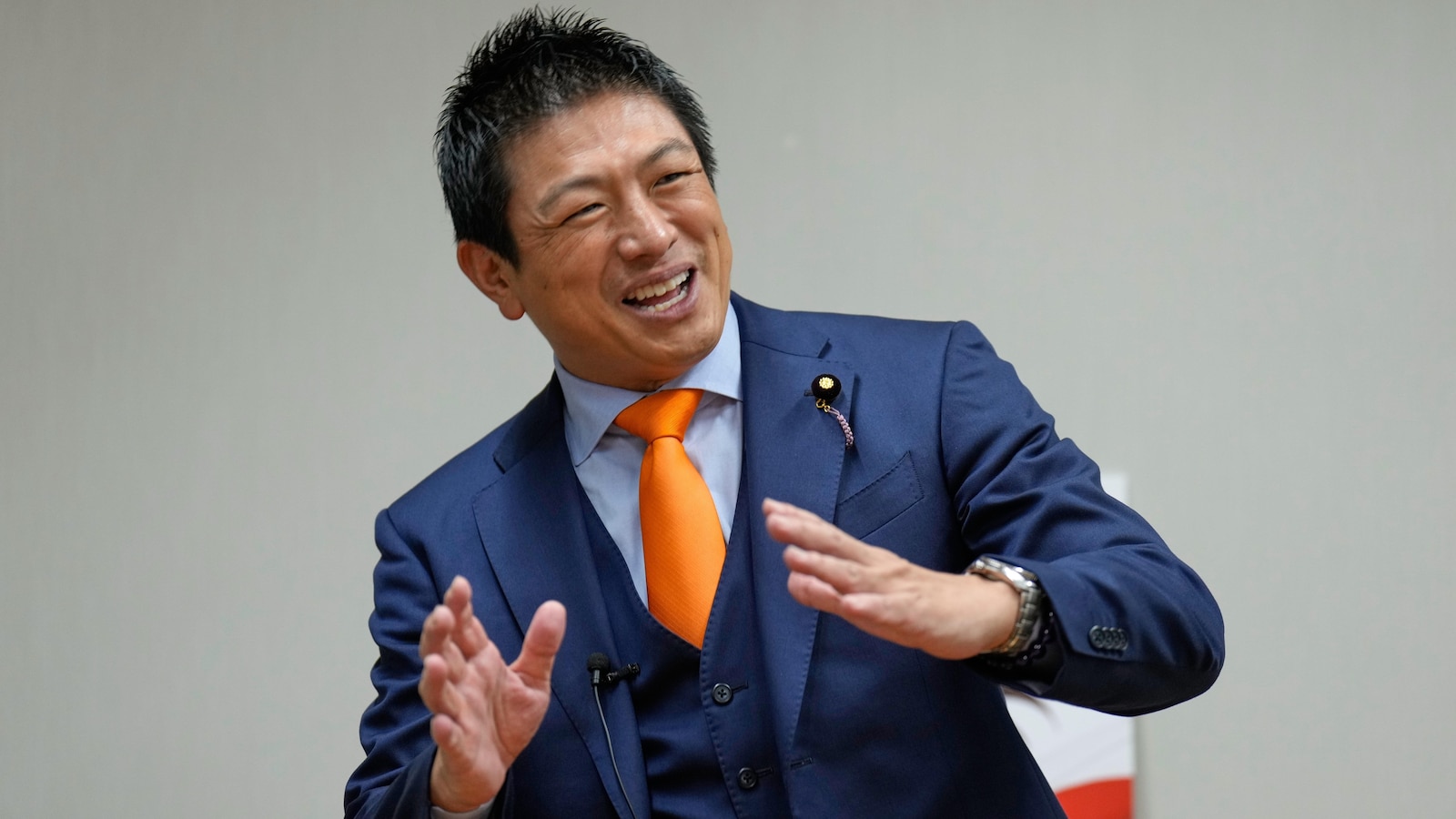Outside a train station near Tokyo, hundreds of people cheer as Sohei Kamiya, head of the surging nationalist party Sanseito, criticizes Japan’s rapidly growing foreign population.
As opponents, separated by uniformed police and bodyguards, accuse him of racism, Kamiya shouts back, saying he is only talking common sense.
Sanseito, while still a minor party, made big gains in July’s parliamentary election, and Kamiya’s “Japanese First” platform of anti-globalism, anti-immigration and anti-liberalism is gaining broader traction ahead of a ruling party vote Saturday that will choose the likely next prime minister.



“Population crisis” is a myth, created by people who want cheap labor. What’s the crisis? What’s so bad about a declining population number? Spell it out!
It’s also possible they are racist.
But if the choice were between racist and greedy, I’m going to bet on greedy 100% of the time.
The biggest issue is probably not being able to play pensions or have people care for the older generation.
Correct. When we hear concerns about a declining population, the concern (typically) isn’t that a population should always be rising, or even that it shouldn’t shrink, it’s more about the long-term economic stability of the age distribution of a population within the demographic pyramid. If your demography skews significantly older, you’re going to have fewer working age people supporting your economy and more post-retirement age people needing to be supported. This can do double damage to government revenue in particular, as they will see a simultaneous decrease in tax income and an increase in pension payouts, and this can lead to a sharp contraction in the available share of the budget for all of the other government priorities.
It’s a bit ironic in this case, as this is pretty common in developed economies, and typically the way you would offset this is via immigration, as that allows you to tailor your requirements to exactly what you need to balance your demography, and so anti-immigration sentiment is only likely to cause a more severe spiral.
…and that means retirees will literally starve and live on the streets? I don’t think it will. It will just be less luxurious.
So wages in care work are rising?
so wages in care work are rising?Who can pay those higher wages? The impoverished older generation? Or three state that is not able to keep up with the costs of pensions?
Who exactly will work those jobs?
you might think that japanese boomers have generational wealth in form of real estate. this is not really the case, especially for rural population. houses aren’t built to last, lose value like motherfucker and are commonly demolished after 20-30 years, in part because people don’t like second hand, in part because there’s no point of building anything sturdier if typhoon or earthquake takes it. there is some newer construction that is intended to last longer, but it’s not a very common thing. so a reverse mortgage type thing won’t exist there, and yeah lots of people will get shafted by these conditions
If you keep taking out more than was put in the fund to fund the larger population in retirement, at some point there’s just nothing left.
They won’t starve and live in the streets because something will change before society reaches that stage, but theoretically it’s not impossible. In Japan, for example, a significant chunk (unsure if a majority) of homeless people are elderly men.
There’s an excellent video that explains all the ramifications of populations decline and it’s not only an economical nightmare but also a cultural obliteration as well over time. They use South Korea as an example but mention that even the US is heading this way but has another decade or so before it gets really bad.
https://youtu.be/Ufmu1WD2TSk
The crisis isn’t simply from a declining total population number. It’s from the demographic shape of that population. Here’s Japan’s population pyramid. As you can see, it’s not really a pyramid - it’s heavily weighted at the older end. As people continue to age that big bulge reaches retirement, and then you have more people retired than you have people still of working age. This causes a number of problems.
Yes, I’m asking you (or other people making the argument that population decline is so bad) to list them.
When an overwhelming proportion of the population is elderly, an overwhelming proportion of the working age populations earnings have to will go to support them. This is measured by an economic ratio known as the dependency ratio which is going to get out of hand for countries like Japan. The strain on public finances paying for pensions and healthcare reduces quality of life for everyone in the country and depresses economic growth as young people working to support the countries elderly population and their own parents have less to invest in the wider economy.
You’re still missing the basic point by talking about the “population decline.” The crisis is not the decline. The crisis is the age distribution.
Here’s a page discussing some of the specific problems of an inverted population pyramid, and it uses Japan as a specific example of a population facing this.
It’s not so much the decline but the ageing. A society mostly consisting of OAPs can’t support itself.